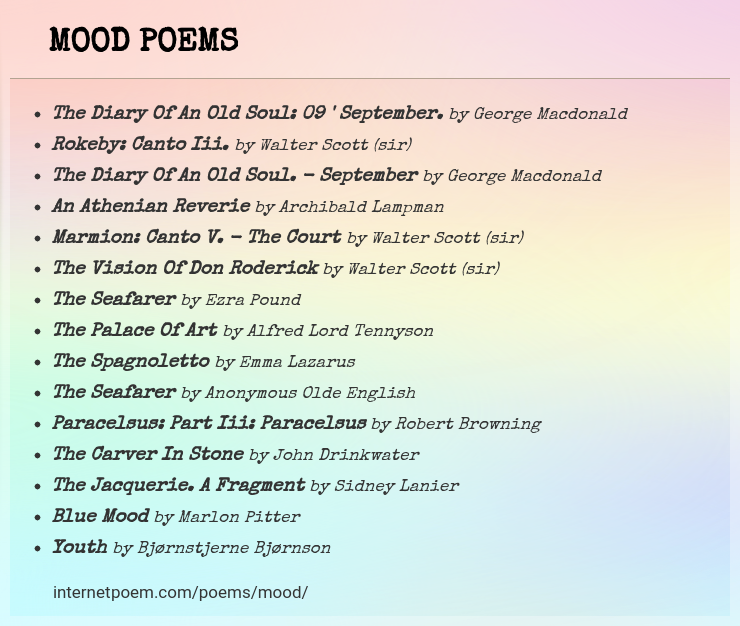
Cyclothymic disorder - a disorder that causes emotional ups and downs that are less extreme than bipolar disorder.Seasonal affective disorder (SAD) - a form of depression most often associated with fewer hours of daylight in the far northern and southern latitudes from late fall to early spring.Bipolar disorder - also called manic depression or bipolar affective disorder, depression that includes alternating times of depression and mania.Major depressive disorder - prolonged and persistent periods of extreme sadness.Mood disorders may increase your risk of suicide. That's why it's time to prioritize self-love, self-care and healing…With time, you'll start seeing your beauty again the pain will lessen you’ll feel lighter, and you'll realize that it was this world all along-trying to keep you in-line.Anxiety disorders can also affect your mood and often occur along with depression. This feeling of unworthiness can be very painful-even physically, and during those moments it's hard to remember that everyone is inherently worthy. As stated previously, the reasons for shame is found at the deepest parts of your subconscious mind. The reason why shame is so toxic is because it's not just about one 's about your whole sense of self.
#Types of negative moods how to#
You are more aware of the problem.ĭepending on the type of emotion you receive, you may need more or less steps in order to release and move on from them… What your emotions are telling you and how to heal from them 1) Shameīased on social norms and the experience of trauma, shame usually develops from unresolved feelings of embarrassment. Why? Because you know what upset you in that moment of anger. At the lowest is shame-Usually caused by something deep within your subconscious mind, it may be important to prioritize healing your inner child: What did your childhood-self never really heal from? Anger, on the other hand, is still destructive - but resonates at a higher frequency.

Notice how this scale clearly demonstrates the difference in consciousness for each emotion. Obviously, I was missing a critical step in my healing journey. So, maybe you were like me-frustrated, because you’re reacting in the same ways you always have Even after dissecting every what/how/who/when/why. Unfortunately, my first attempt caused me to the other extreme of psycho-analyzing everything.ĭon’t get me wrong, psychoanalyzing is great to understand more about your patterns but it can also prevent you from actually experiencing your emotions. (hint: burnout), after reaching a breaking point, I realized I had to change something and figure out ways of preventing this toxic cycle of burnout. In the past, I severely avoided my emotions-specifically with work. (2) Extreme Psycho-Analyzers: Those who over-analyze every facet of a trigger in hopes of moving past it. (1) Distractors: Those who distract themselves with anything possible: alcohol, sex, movies, work, etc. Do you find yourself psychoanalyzing a lot? Would you believe me if I told you it could actually be a form of self-sabotage? Hear me out before you click off.There are two ends of the spectrum for people who deal with emotions:


 0 kommentar(er)
0 kommentar(er)
